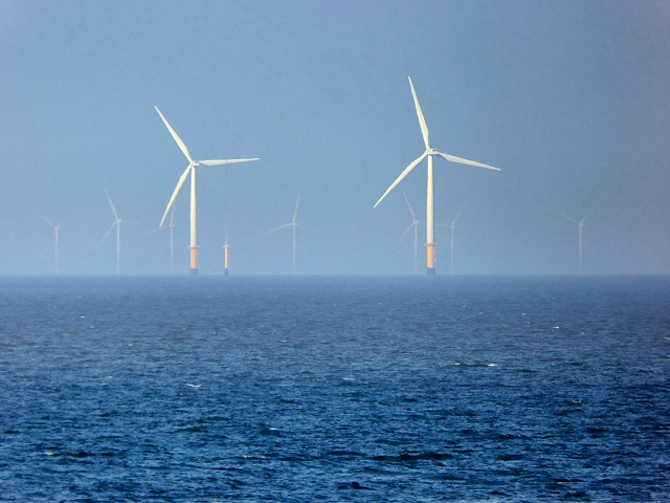
The project is focused on key identified deficiencies in the offshore Wind Turbine (WT) and Wave Energy Converter (WEC) domains. It is highly industrially orientated and targets employer and industry demand for offshore wind and wave energy engineers with expert education and training.
Not only will the project directly create employment, it also involves a training programme, which will introduce young researchers to the technical disciplines necessary in offshore renewable energy, and also strengthen their interdisciplinary knowledge of key emergent systems and technologies. It is hoped that this training will assist the offshore wind and wave sectors accelerate innovation, development and deployment of new offshore technologies.
Ireland’s seas are still a vastly untapped resource for offshore energy biotechnology applications and aquaculture, especially considering that Ireland has 220 million acres of territorial sea floor – a natural resource that is approximately ten times the size of Ireland’s land area.
The slow development of offshore energy resources is the result of several technological difficulties, and a lack of funding. An offshore wind farm is much more costly to build than a land-based wind farm of comparable size. As professor McGoldrick has stated: “As deployments move into ever deeper waters, the associated capital expenditure increases rapidly and new management and control technologies, and operational concepts, become critical in maximising the techno-economic benefit.”
Technological difficulties in operating marine renewable energy generators are many and varied. In high winds the turbines must be stopped because they are easily damaged. Build-up of salt on offshore turbine blades has been shown to reduce the power generated by 20%-30%. Perhaps most significantly is the variability of the energy generated. Electricity generation from wind fluctuates greatly. This makes it difficult for existing energy grids to access.
Wind power needs a corresponding expansion of the high-voltage and extra-high-voltage grid infrastructure, which makes the grid more unstable when expanded, and is often too variable to provide the predictable supply that the grid demands. Unfortunately, only limited forecasting is possible for wind power. In addition to this, saltwater is a hostile environment for devices, and waves themselves offer a challenge for energy harvesting. Not only do they roll past a device, but also converge from all sides in choppy seas.
McGoldrick also said: “The technological challenges of creating, deploying, maintaining and efficiently operating offshore energy installations are considerable. The marine environment is harsh and necessitates new, innovative and robust design approaches.” ICONN proposes such new technologies and approaches. The partners of the ICONN project span include specialists in control, reliability and operational efficiency and companies with new, innovative wave energy machines.
The programme is also revolutionary in that researchers spend at least half their time in industry in order to foster transnational, inter-sectoral and interdisciplinary skills and mobility. McGoldrick added that the awarded funding “underlines the importance and value of excellence in education, training and research to cutting-edge industry sectors across the EU.
The H2020 MSCA European Industrial Doctorate (EID) programme, under which ICONN is funded, is extremely competitive. To put it in a national context, only two such applications were awarded funding in Ireland in 2015 – and ICONN was one of those.”






